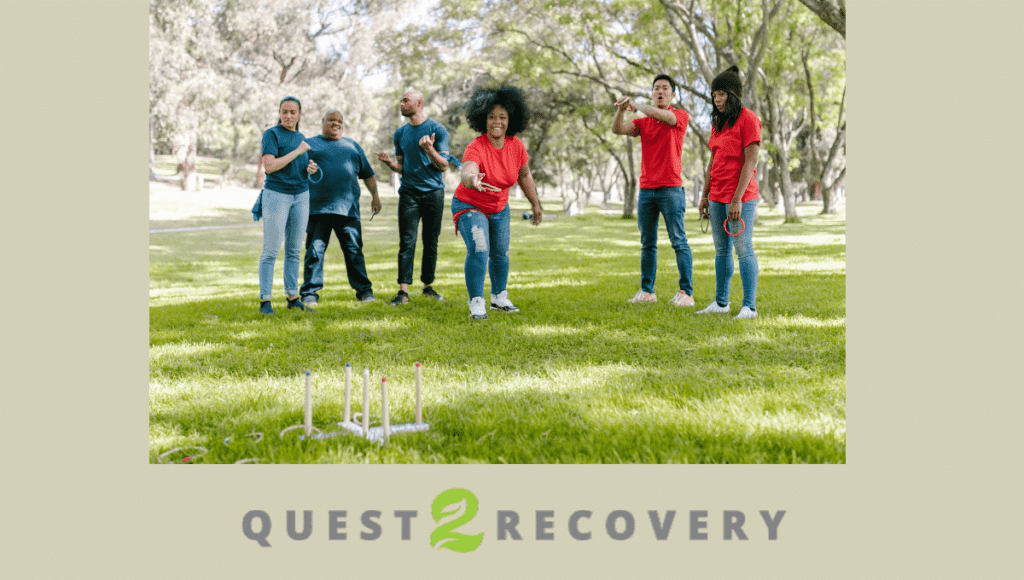Healthcare professionals, especially in the most developed countries, attribute to the highest rates of drug and substance abuse in the medical field. A case study in the USA today would reveal that approximately 100,000 medical personnel such as nurses and other technicians struggle with drug and substance abuse.
Questions may crop out as to how this is practical. Well, this is explained by different scenarios but not limited to; a way to manage stress from everyday hard decisions reached, a means of remaining alert during shifts or working hours, access to drugs that are in high demand, and also imbalance between work and life.
Dealing With People At Their Worst
Different professionals deal with people while at their worst. This could be emotionally, mentally, spiritually, and/or physically. Medical professionals are charged with the responsibility of handling either mental and physical attributes or disorders.
During the dispensation of these duties, they are left with limited options other than to tender patients who are at their worst, some of which survive on a clock. Events such as these have had a direct connection with the high-stress work environment in medical facilities.
Health professionals as a result of these painful ordeals turn to drug abuse and eventually become dependent on the same.
This is exacerbated by the fact that healthcare professionals have extensive knowledge of the effects of these drugs on an individual; Knowledge which would later impact the usage of drugs with the belief that they would know when to stop. Eventually, they become functional addicts.
Witnessing Traumatic Events
Trauma is very customary within the healthcare setup. It means an unforgettable distressing experience based on already unfolded events. Medical professionals have had to deal with this particular thing for as long as their career kicks off and even after retirement.
Traumatic events are mostly attributed to the following; fatal accidents, losing patients in theaters, infant mortality, permanent paralysis, etc. Unfortunately, a significant population of our health care providers has sought solace in drug and substance abuse in the hope of dealing with work trauma.
This has resulted in over-reliance and dependence on drugs to an extent that it has become alarming among medical professionals globally. Some have had to be referred to rehabilitation centers and counseling sessions.
On the brighter side, however, most of these professionals recover remarkably, and only a very small percentage relapse after rehabilitation and counseling. Additionally, as they grow in their career, they become even more resilient to the events that may trigger traumatic episodes.

Long Work Hours And Short-Staffed
According to the World Health Organization (WHO), the doctor-to-patient ratio should be 1:1000. This means 1 doctor should serve a population of at least 1000 patients. Unfortunately, this is barely the case, especially in developing countries.
Doctors and other medical professionals are normally understaffed, resulting in long work hours and minimal rest time between shifts.
This is the single most common contributing factor to fatigue and exhaustion among health care providers. Such dynamics have directly or indirectly foreseen the inclusion of drug and substance abuse in the day-to-day lives of healthcare professionals. Nurses especially in the psychiatric departments are more susceptible to addiction as a result of direct access to pharmacology in this area of medicine.
The nurses also feel authenticated in the use of this medication as a way of relieving their mental and emotional turmoil. This consequently results in self-medication by the nurses leading to addiction to an array of controlled substances in medical facilities.

A Pandemic We Weren’t Expecting
The year 2019 marked a new era when a dreaded disease struck every corner of the entire world. Covid-19 disease, later on, to be declared a pandemic by the World Health Organization (WHO) in 2020 spread across nations furtively through direct contact of people among other ways. The disease is described as an acute upper respiratory infection caused by the coronavirus.
It can produce severe symptoms such as fever, dry cough, loss of appetite, general body weakness, and even death. Health professionals were now dealing with an enemy whose descent at the moment was unknown. The pandemic was so devastating to the extent that even our frontline workers were exposed to the same, leading to their deaths.
Quarantine facilities were set up to isolate patients from the healthy population. At the start, the infection rate was so high that medical professionals were overwhelmed with the increasing number of admissions of patients. Healthcare providers had to spend nearly the entire 24 hours of the day in hospitals busy attending to these patients.
Most of them resulted in dependence on drugs and substances to cope with this new pattern of life. Traumatic experiences, long working hours, and access to substances and drugs triggered addiction among health professionals.
With time the pandemic has been significantly contained, especially with the emergence of different vaccines, adherence to formulated Covid-19 protocols, and civic education concerning the disease by government and non-governmental organizations.
Unable To Maintain A Healthy Work-Life Balance
Healthcare professionals have very demanding careers. There is a need to maintain a healthy work-life balance. Some healthcare providers end up being secluded from the lives of their family members. A situation propagated by the busy schedules late-night shifts and numerous emergency call-ups.
As a result of such a disconnect a significant number of nurses and doctors (mostly), result from drug and substance addiction. Alcoholism to be specific has come out to be a major land spot for nurses and doctors who have undergone traumatic episodes, hefty work schedules, and family disconnect among other scenarios.
Medical practitioners may also be suffering from underlying mental problems. This may take a toll on these professionals leading to alcoholism as a way to cope with the same and also handle stress from home and family.
In isolated cases, some medical professionals have sought an outfall for the good money they make through lavish lifestyles and binge drinking leading to alcohol addiction.
Easier Access To Substances
Medical professionals especially doctors, nurses, and pharmacists have direct access to drugs and substances in medical facilities. Prescription drugs such as opioids and benzodiazepines are subject to misuse, especially during exhausting shifts.
These drugs tend to “relax” the body and can be stimulants to provide energy to counter burnout. The combination of these drugs with alcohol and other narcotics tends to worsen situations. Medical professionals have also believed that the extensive understanding of drugs and substances they pose would be a silver bullet towards addiction.
This however has proven to be a serious misconception of the hard reality that addiction is equally applicable to anyone across any profession. Other drugs such as analgesics have also been misused by doctors through self-medication in an attempt to quickly relieve pain or stress.
These practices have resulted in resistance to other pain-relieving drugs leading to dependence.
Treatment Options For Health Professionals
Treatment for our medical professionals underpinned by drug and substance addiction is not debatable. These are the frontline workers in combating diseases and other disorders. Rehabilitation/counseling and administration of drugs are the most common and proven methods for the treatment of addiction among health professionals.
Treatment facilities come in handy through the provision of medicine and “detox” to suppress addiction while at the same time ensuring that the patients retain their work licenses.
Healthcare professionals in rehab can connect with other professionals and end up building mutually beneficial interactions. With adequate and proper treatment plans medical practitioners recover even faster than other addicts.
Whereas it’s perceived that complete abstinence from drinking, especially alcohol, is the ultimate cure, studies have shown that reduction of portions/quantity also works profoundly. The ability to control the quantity taken translates to discipline and conformity to a life pattern.
Medical professionals hooked up in drug and substance abuse are considered functional or functioning addicts.
This means that even in addiction, they may be able to dispense their professional duties properly but not adequately. Therefore, the restoration of these professionals to full functionality should be more encouraged and advocated for rather than disciplinary actions such as revoking their licenses.









